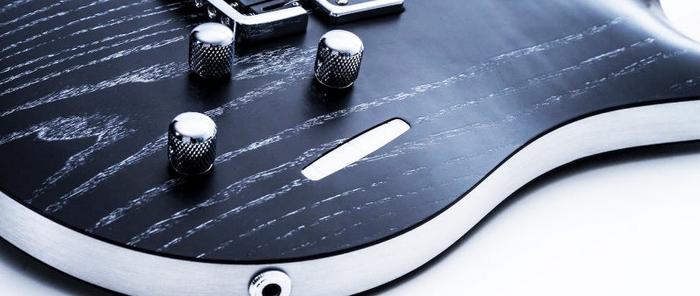There was a moment during an Arctic Monkeys’ gig when I realized that Alex Turner’s guitar wouldn’t just carry the melody—it would redefine it. His fingers danced across the strings with an ease that belied the complexity beneath. As the notes reverberated, I pondered the mystery of his innovative style: how does he seamlessly blend such *raw energy* with a *subtle elegance*? As a journalist deeply entrenched in the evolution of modern guitarists, the enigma of Turner’s approach was impossible to ignore.
Turning back the clock, one must uncover the array of guitars that have become synonymous with his name. Whether a vintage *Fender Stratocaster* or a custom *Gibson*”, each instrument holds a story, a piece of his journey. Join me as I delve into the arsenal of Alex Turner guitars and unravel the techniques that render his style *captivating* yet *deceptively intricate*—a true cornerstone of contemporary rock’s evolution.
Who is Alex Turner?

Having written extensively about influential guitarists, I’m fascinated by how Alex Turner’s background has shaped his unique musical identity and style. Alex Turner, the charismatic frontman of the Arctic Monkeys, is undoubtedly one of the most significant figures in modern rock music. Hailing from Sheffield, England, Alex developed his musical prowess in the early 2000s, quickly becoming a household name alongside his bandmates.
Did you know that Alex Turner’s songwriting evolved significantly after the Arctic Monkeys’ debut, influencing his guitar techniques? This evolution is a key component of understanding his artistic journey. Initially, the raw energy of their sound was rooted in the rapid-fire riffs characteristic of their breakout album, *Whatever People Say I Am, That’s What I’m Not*. However, Turner’s artistry did not stagnate; instead, it expanded to include a more sophisticated melodic intuition and versatility, crucially impacting his guitar play.
From the Arctic Monkeys’ early days, when Turner’s guitar work was a thick layer of post-punk swagger, to the more nuanced, genre-blending styles found in later records, his musical style showcases a profound adaptability. Alex’s ability to *emphasize mood and emotion through his guitar work* has become a defining feature of their music, setting him apart from many contemporaries. Understanding Alex Turner requires an appreciation of how his experiences and evolving musical tastes continuously redefine his approach, making each Arctic Monkeys album a testament to his artistic growth.
What Guitars Does Alex Turner Play?
Signature Models

In my exploration of various guitars over the years, I’ve seen how *signature models* can become extensions of a player’s identity, perfectly illustrated by Turner’s choices. This brings us to a fascinating question: Could the choice of an Ovation Viper or a Gibson J-45 define a guitarist’s playing style? Alex Turner’s arsenal reveals a thoughtful selection that emphasizes both *versatility* and *distinctiveness*. The Ovation Viper, with its unique blend of acoustic and electric qualities, complements Turner’s innovative flair in Arctic Monkeys’ early work. Meanwhile, the Gibson J-45 stands out for its *warm tonal richness*, showcasing Turner’s *introspective songwriting* in his solo endeavors. These guitars are more than mere instruments; they are transformative in shaping the textures and dynamics of his music. As we delve deeper, it becomes evident how these choices not only augment his style but also invite listeners into the evocative soundscape he so masterfully crafts.
Usage in Live Performances

Having attended numerous live performances, I can attest that a guitarist’s gear profoundly influences their stage presence and sound. Alex Turner’s guitar choices during live shows are no exception, providing a sonic palette that heightens the audience experience. *What’s the impact of Alex Turner’s guitar choices during live shows on audience experience?* His selection of guitars, from the gritty growl of a Fender Jazzmaster to the warm tones of a Gibson ES-335, offers a dynamic range that keeps every performance fresh and enthralling. Turner’s guitar gear isn’t just about aesthetics; it shapes the energy and *emotional intensity* of each performance, drawing fans into the vivid narratives spun by his music.
His masterful execution with different instruments showcases not only his technical skills but also his versatility as a performer. Such *strong mastery* serves to captivate audiences, amplifying the emotive impact of Arctic Monkeys’ tracks. Transitioning seamlessly, this aspect of his artistry underscores how Turner’s performances continue to resonate deeply with his fans. This seamless integration of guitar gear into his live storytelling crafts a memorable and immersive experience, setting the stage for understanding how his playing technique, explored in the next section, further enriches his live performances.
How Does Alex Turner Play?

Analyzing a guitarist’s technique reveals much about their influences and creativity; Turner’s play is no exception to this. Reflecting on his unique guitar style is a journey into his musical mindscape. His approach to guitar, characterized by deft transitions and a penchant for melancholic undertones, is as distinct as it is engaging. His riffs often echo with a raw intensity that is emblematic of his roots and influences.
Can understanding the intricacies of Alex Turner’s guitar riffs lead us to appreciate his artistry even more? The answer, I believe, lies in the layers of subtleties he brings to his music. Turner’s playing style captivates with its minimalistic yet powerful ethos. His guitarist skills are not just in the technical execution of guitar solos, but also in how he constructs a narrative through sound.
Take, for example, songs where he exhibits his deft ability to shift dynamics, weaving guitar riffs that ebb and flow with the emotional cadence of the lyrics. This ability to complement the band’s storytelling with his strings is a testament to his role not merely as a guitarist, but as a storyteller. His restraint, choosing notes that amplify rather than overshadow the vocals, speaks volumes of his artistic restraint and understanding of musical space.
In analyzing Turner’s guitar style, we uncover a blend of simplicity and complexity—a balancing act that showcases his deep understanding of music and an ability to ground his experimentation within familiar sounds. This exploration offers us not just admiration, but a deeper appreciation of the creative mind behind the melodies we enjoy.
Why is Alex Turner’s Guitar Style Unique?

As someone who studies the relationships between artists and their instruments, I believe Alex Turner’s style breaks conventional boundaries in ways that continue to captivate musicians and fans alike. His musical style is a tapestry woven with threads of complexity and simplicity, an intriguing combination that reflects both his eclectic influences and personal expression. What makes Alex Turner’s approach to guitar unlike any other guitarist in the modern era?
His distinctive elements are not just found in his choice of guitar brands, celebrated for their rich tonal qualities, but in his ability to blend stark, minimalistic riffs with layered textural sounds. This unique approach allows him to traverse different genres seamlessly, drawing from indie rock, psychedelic tones, and even pop. I’ve observed how Turner’s ability to mold his playing style around emotional and narrative elements of a song sets him apart from his contemporaries. It’s this fusion of technique with storytelling that defines his work with Arctic Monkeys and beyond.
Instead of adhering strictly to genre-specific techniques, Turner forges his identity by constantly evolving. Using both electric and acoustic guitars with equal dexterity, he manipulates tone and dynamics to create a soundscape that’s distinctly his own. This versatility and depth not only highlight his technical prowess but resonate deeply, evoking a visceral connection with listeners that few can replicate. Through this exploration of his guitar style, one can see why Alex Turner stands as a beacon of modern guitar innovation.
Conclusion
As I reflect on Alex Turner’s guitar journey, a compelling tapestry of skills, gear, and enigmatic qualities emerges, *propelling his music into new realms*. His artistry showcases a unique fusion of rhythm and melody that resonates across genres and influences countless musicians. Is there a lasting legacy that Alex Turner’s guitar playing will leave on future generations of musicians? *Absolutely.* The *impactful dynamics* of his playstyle, shaped significantly by his choice of guitars and signature models, shine through in live performances, creating an indelible mark on the music world.
His ability to weave introspective lyrics with *captivating guitar riffs* demonstrates an undeniable mastery, positioning him as a significant figure in contemporary music. Viewing his journey through a personal lens, *Alex Turner’s guitars* become more than mere instruments; they are extensions of his creative expression. His unique style offers inspirational *insights and techniques* that will undoubtedly continue to inspire and innovate, ensuring his rightful place in music history.
FAQs

